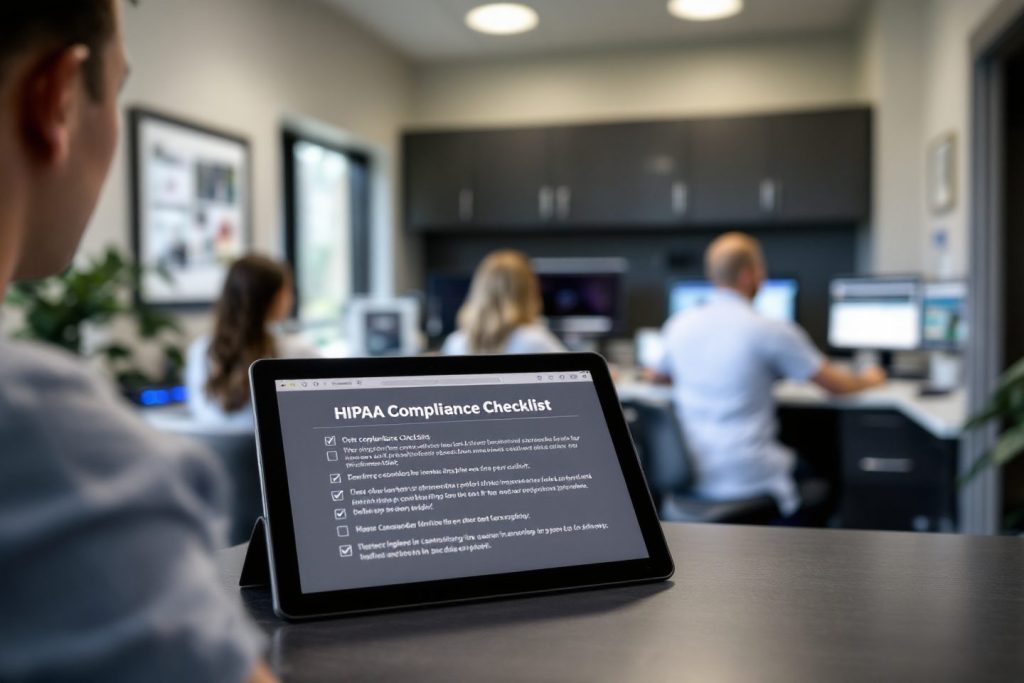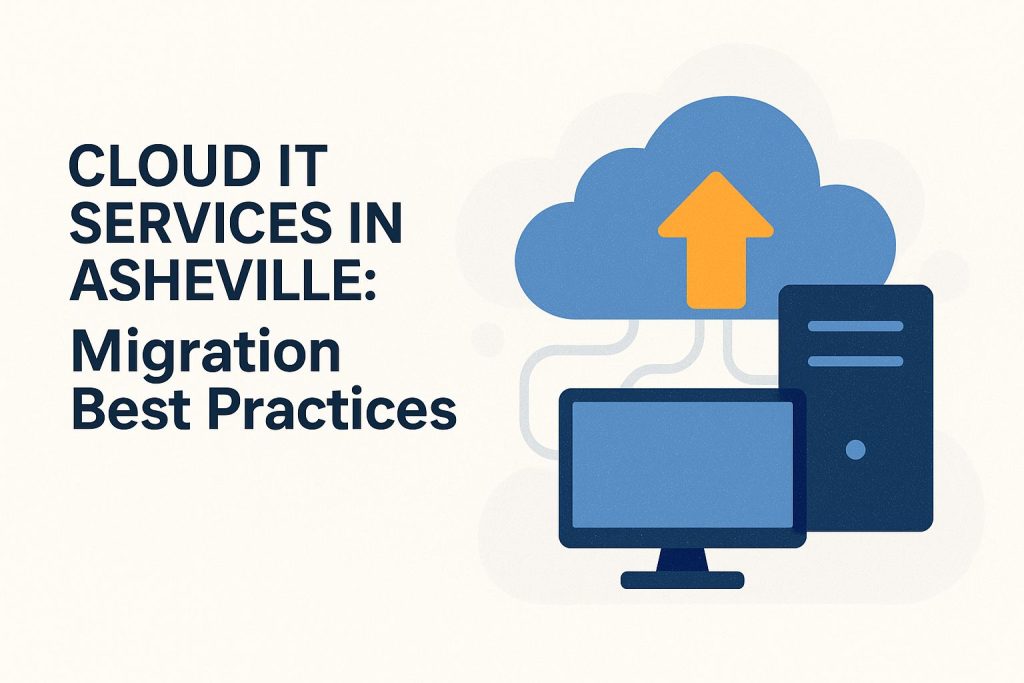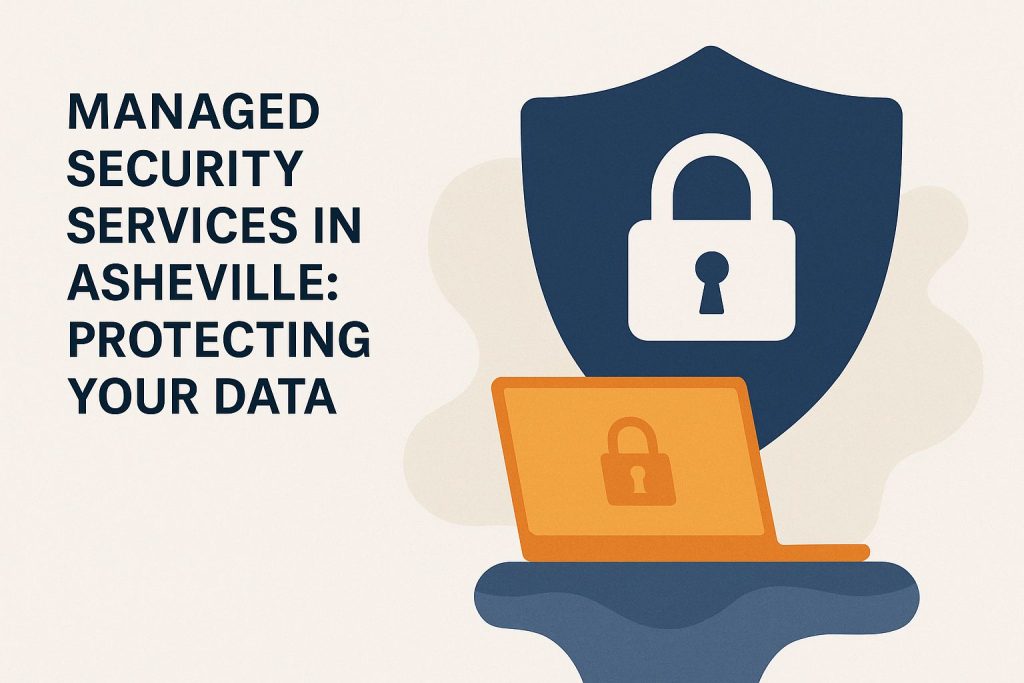HIPAA-Compliant IT Solutions for Asheville Dental Practices: Protecting Patient Records While Improving Office Efficiency

For dental practices in Asheville, protecting patient information isn’t just about following rules—it’s about maintaining trust. With cybersecurity threats on the rise and patient expectations growing, having HIPAA-compliant IT solutions in place is more important than ever. These tools help ensure that sensitive health records are secure while also making daily operations smoother and more efficient.
In this guide, we’ll break down the key HIPAA regulations, explore practical IT solutions for your practice, and show how these strategies can protect patient data, improve workflows, and build stronger relationships with your patients.
Why HIPAA Compliance Matters for Dental Practices
HIPAA (the Health Insurance Portability and Accountability Act) sets the standard for protecting sensitive patient information. For dental practices, staying compliant isn’t optional—it’s the law. But more than that, it’s a way to show patients you care about their privacy.
Failing to meet HIPAA standards can lead to hefty fines and damage your reputation. But when you make data security a priority, you build trust with your patients and protect the integrity of your practice.
Understanding HIPAA: What Dental Practices Need to Know
HIPAA covers more than just storing files securely. It’s a comprehensive framework that includes:
-
Administrative safeguards (like staff training and risk assessments),
-
Technical safeguards (like encryption and access controls), and
-
Physical safeguards (like secure storage for paper records).
For dental teams, this means making sure everyone—from front desk staff to hygienists—understands how to handle patient data responsibly. Regular training helps your team stay sharp and spot risks before they become bigger issues. It also reinforces your practice’s commitment to privacy, which patients notice and appreciate.
IT Solutions That Keep Your Dental Practice HIPAA-Compliant
Technology plays a huge role in keeping patient data safe. The right IT solutions not only ensure HIPAA compliance but also make your day-to-day operations more efficient. Here’s how:
1. Secure Data Storage & Encryption
Every dental practice handles sensitive electronic health records (EHRs), and storing these files securely is a top priority. Using advanced encryption protects this data whether it’s sitting on a server (at rest) or being sent over the internet (in transit).
Cloud storage solutions built for healthcare add another layer of security while offering the flexibility to scale as your practice grows. Plus, many cloud providers offer automatic updates, keeping your system protected without the need for manual intervention.
2. Secure Communication & File Sharing
Patients expect clear and timely communication from their dental providers—but that communication needs to be secure. HIPAA-compliant messaging systems and encrypted email platforms allow you to:
-
Send appointment reminders,
-
Share treatment plans,
-
Deliver billing information,
—all without compromising patient privacy.
Secure patient portals also let patients access their records and communicate with your office easily, boosting engagement and making your practice stand out.
3. Employee Training & Monitoring
Technology is only as good as the people using it. That’s why ongoing training for your staff is essential. Regular sessions ensure your team knows how to handle sensitive data correctly, helping to prevent accidental breaches.
In addition to training, monitoring tools and regular audits keep your practice accountable, ensuring that everyone follows the protocols. Encouraging a culture where staff feel comfortable reporting concerns further strengthens your data security.
The Benefits of HIPAA-Compliant IT Solutions for Dental Practices
Implementing HIPAA-compliant IT solutions does more than protect patient data—it creates a stronger, more efficient practice.
1. Build Patient Trust and Confidence
When patients know their health records are secure, they’re more likely to trust your practice and stay loyal over time. With so many stories about healthcare data breaches in the news, that extra reassurance goes a long way.
By being transparent about how you protect their data, you show patients that their privacy matters. This fosters stronger relationships and encourages patients to stay engaged in their care.
2. Streamline Office Operations
HIPAA-compliant systems aren’t just about security—they also make your practice run more smoothly. Automation tools can handle:
-
Appointment scheduling,
-
Billing and insurance claims,
-
Follow-up reminders.
This frees up your staff to focus on what they do best—caring for patients. It also reduces errors, speeds up processes like insurance reimbursements, and ensures sensitive information is only accessible to authorized personnel.
For example, integrated billing software can automate claims and payments, minimizing delays and keeping your cash flow steady. Secure communication tools make coordinating care easier and more efficient, improving the overall patient experience.
Frequently Asked Questions
What are HIPAA-compliant IT solutions and why do they matter for Asheville dental practices?
These are technologies designed to protect patient records and ensure your practice complies with privacy laws. They safeguard sensitive data while helping your practice operate more efficiently.
How do these solutions improve office efficiency?
They automate routine tasks like scheduling, billing, and record-keeping, allowing your team to focus on patient care while ensuring secure access to information.
What are some examples of HIPAA-compliant IT solutions?
-
Encrypted email and messaging systems,
-
Cloud storage with advanced security features,
-
Secure patient portals,
-
Regular data backups and access controls.
How do they help protect patient records?
By encrypting data, limiting access to authorized users, and tracking activity, these solutions ensure patient records stay confidential and secure from breaches.
Do dental practices need to comply with HIPAA even if they don’t store patient records electronically?
Yes. HIPAA applies to all patient records, whether digital or paper. Practices must have safeguards in place for both types of data.
What happens if a practice isn’t HIPAA compliant?
Non-compliance can lead to fines, legal trouble, and loss of patient trust. Prioritizing HIPAA compliance helps avoid these risks while showing patients you take their privacy seriously.
In summary:
For Asheville dental practices, adopting HIPAA-compliant IT solutions is about more than just meeting regulations—it’s about building a practice that patients can trust and ensuring your operations run as smoothly and securely as possible.




